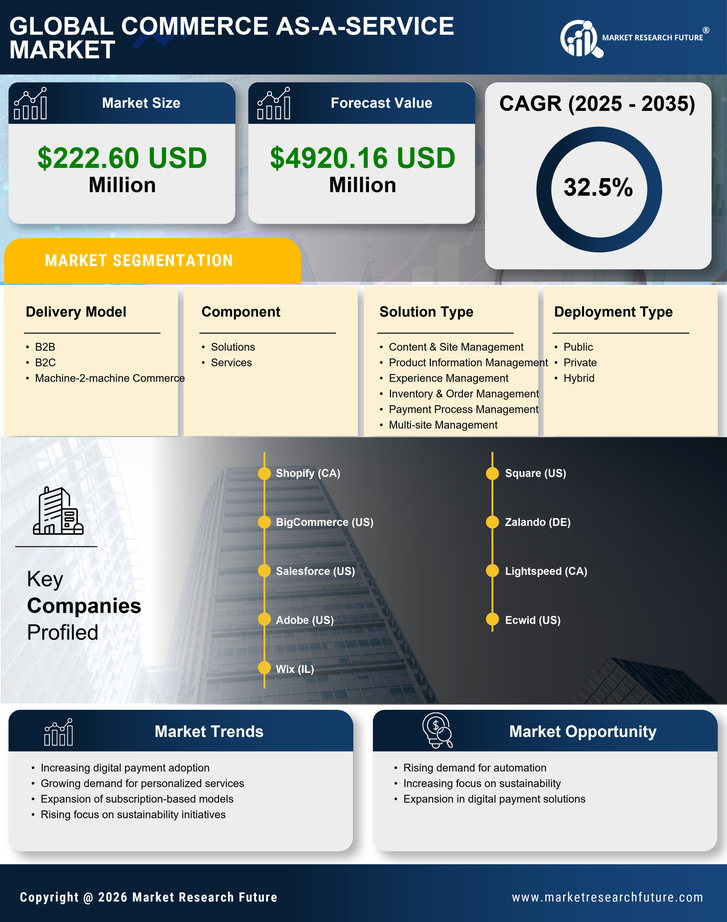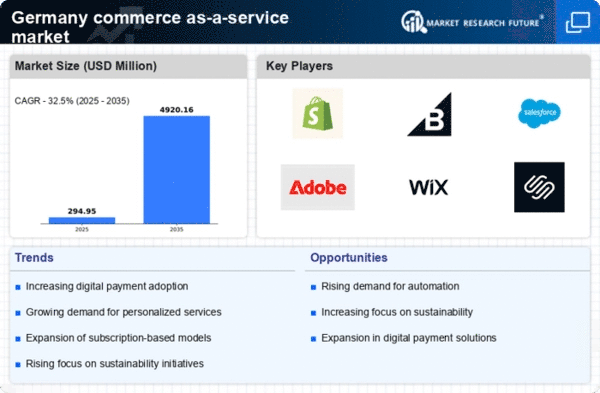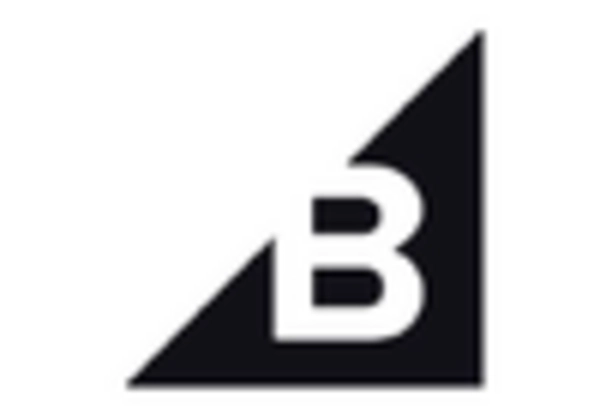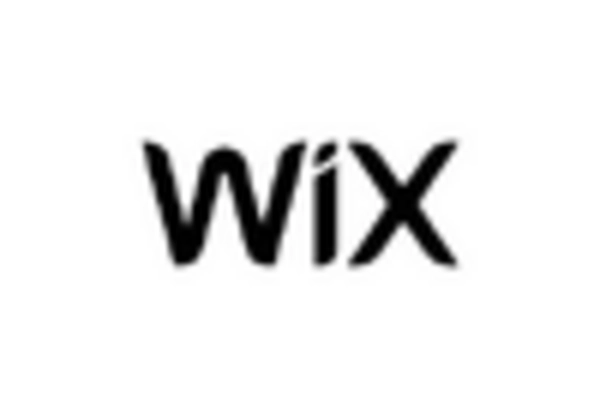Rising Demand for E-commerce Solutions
The commerce as-a-service market in Germany is experiencing a notable surge in demand for e-commerce solutions. As consumers increasingly prefer online shopping, businesses are compelled to adapt their operations accordingly. In 2025, e-commerce sales in Germany are projected to reach approximately €100 billion, reflecting a growth rate of around 10% annually. This shift necessitates robust platforms that can support various functionalities, including inventory management, customer relationship management, and analytics. Consequently, service providers in the commerce as-a-service market are likely to innovate and enhance their offerings to meet these evolving demands, ensuring seamless integration and user-friendly experiences.
Increased Investment in AI and Automation
Investment in artificial intelligence (AI) and automation is becoming a driving force within the commerce as-a-service market in Germany. Businesses are increasingly leveraging AI technologies to enhance operational efficiency and improve customer experiences. In 2025, it is estimated that 40% of companies will implement AI-driven solutions to optimize their marketing and sales strategies. This trend indicates a shift towards data-driven decision-making, where insights derived from AI can inform product recommendations and customer interactions. Consequently, commerce as-a-service providers are likely to prioritize the development of AI-powered tools that enable businesses to harness the full potential of automation, thereby enhancing their competitive edge.
Emergence of Omnichannel Retail Strategies
The emergence of omnichannel retail strategies is reshaping the commerce as-a-service market in Germany. Businesses are increasingly recognizing the importance of providing a seamless shopping experience across multiple channels, including online, mobile, and physical stores. In 2025, it is projected that 60% of retailers will adopt omnichannel strategies to enhance customer engagement and satisfaction. This trend necessitates the development of integrated platforms that can manage inventory, sales, and customer interactions across various touchpoints. As a result, commerce as-a-service providers are likely to focus on creating solutions that facilitate this integration, enabling businesses to deliver a cohesive and personalized shopping experience.
Growing Focus on Data Security and Compliance
Data security and compliance are paramount concerns for businesses operating within the commerce as-a-service market in Germany. With stringent regulations such as the General Data Protection Regulation (GDPR) in place, companies must prioritize the protection of customer data. In 2025, it is anticipated that 70% of businesses will invest significantly in security measures to safeguard sensitive information. This focus on compliance not only mitigates risks but also enhances customer trust, which is essential for fostering long-term relationships. Consequently, service providers in the commerce as-a-service market are likely to develop solutions that emphasize security and compliance, ensuring that businesses can operate confidently in a regulated environment.
Technological Advancements in Payment Processing
Technological advancements play a pivotal role in shaping the commerce as-a-service market in Germany. The integration of advanced payment processing technologies, such as mobile wallets and contactless payments, is becoming increasingly prevalent. In 2025, it is estimated that over 50% of online transactions in Germany will utilize these innovative payment methods. This trend not only enhances the customer experience but also streamlines operations for businesses. As a result, commerce as-a-service providers are likely to invest in developing secure and efficient payment solutions, thereby fostering trust and encouraging higher transaction volumes.

















